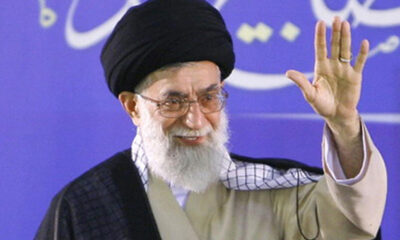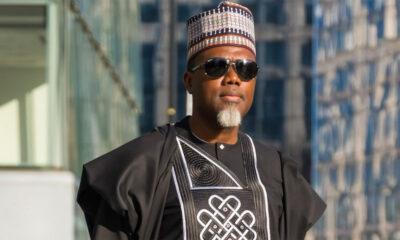News
Mass deportation: Nigerians in US face emotional strain, uncertain future

Mass deportation: Nigerians in US face emotional strain, uncertain future
By Damilola Salawu
The situation is becoming tense in many Nigerian homes in the United States as they come to terms with the reality of new immigration policy rolled out by President Donald Trump.
Although the presidential order is targeted at illegal immigrants and those whose visas have expired, others including American citizens connected by marriage, business or friendship will no be affected.
Going by the latest official data, the Trump administration’s new immigration policy will result in the deportation of 5,144 Nigerians, sparking widespread concern.
The deportation is part of a broader effort to remove undocumented individuals from the United States, targeting those who entered the country unlawfully, overstayed their visas, or committed criminal offences.
For many Nigerians, the news has been devastating. Some of those facing deportation have lived in the US for years, building families, careers, and a sense of stability.
Now, they are being forced to return to a country they may not have visited in decades, where economic challenges and societal stigma await them.
READ ALSO:
- Police to arraign Sowore over Endsars comments against IGP Egbetokun
- Two confirmed dead, many injured in Lagos two-storey building collapse
- 5,144 Nigerians face deportation from US over new immigration policy
“I don’t know how I’m going to start over,” said one deportee who had spent over 15 years in the US.
“I left Nigeria because I wanted a better life, and now I’m going back with nothing.”
Critics of the policy argue that the deportation is inhuman, often tearing families apart and sending individuals back to uncertain future.
Many deportees leave behind children and spouses who are US citizens, creating emotional and financial strain on families.
On social media, Nigerians have expressed frustration and sadness over the situation.
“This is not just about deportation,” one user commented. “It’s about the human cost—families separated, lives disrupted, and futures destroyed.”
Economists warn that the influx of deportees could strain Nigeria’s already fragile economy.
Many returning individuals will face difficulty finding employment or rebuilding their lives, especially without adequate government support.
Supporters of the deportation policy, however, argue that enforcing immigration laws is necessary for national security and fairness to those who entered the country legally.
“The law is the law,” one US immigration official stated.
As these deportations continue, questions remain about their long-term impact on families and communities, both in the US and Nigeria.
For the deportees, the journey ahead will be one of resilience and rebuilding in the face of immense challenges.
Nigerians in Diaspora Commission (NiDCOM) says the Federal Government has put in place an inter-agency committee to tackle any matter that may arise from mass deportation of Nigerians from the US.
But critics wonder whether government plans a separate ‘externally displaced persons’ (EDP) camps in addition to the overcrowded IDP (internally displaced) camps in Nigeria.
Mass deportation: Nigerians in US face emotional strain, uncertain future
News
World Bank approves Tinubu’s $632m loan request

World Bank approves Tinubu’s $632m loan request
The World Bank is poised to approve $632 million in new loans to Nigeria today (Monday), amid growing concerns over the country’s expanding debt profile.
The loans are intended to support important sectors such as nutrition enhancement and quality basic education.
According to data obtained from the World Bank’s website on Sunday, the two loans scheduled to be approved today are $80 million for the Accelerating Nutrition Results in Nigeria 2.0 initiative and $552 million for the HOPE for Quality Basic Education for All programme.
Both projects are now in the negotiating phase and are likely to gain final clearance later today.
These new loans are part of the World Bank’s overall strategy to support Nigeria’s development agenda, which focuses on healthcare, education, and community resilience.
The loans will support the government’s efforts to improve nutrition and education for Nigerian children.
Additionally, the World Bank approved a $500 million loan for Nigeria’s Community Action for Resilience and Economic Stimulus Programme on March 28, 2025, a significant step towards addressing the country’s economic challenges through expanded access.
The initiative, formally known as the NIGERIA: Community Action (for) Resilience and Economic Stimulus Programme, is intended to give critical support to households impacted by economic downturns while also strengthening community resilience.
The initiative focuses on vulnerable populations, providing assistance to households and small companies to help them cope with economic difficulties.
READ ALSO:
- Okada rider allegedly stabbed to death by wife over money
- Police rescue two persons abducted in Lagos
- Miyetti Allah accuses Benue community of poisoning 20 cows
The loan clearance is likely to considerably boost Nigeria’s efforts to revive the economy through grassroots backing, especially given current issues such as inflation and high living costs.
The stimulus plan will prioritise enhancing food security and developing economic possibilities for the populations most affected by recent economic changes.
This decision came after a delay in distributing funds for a previous loan aimed at poor and vulnerable Nigerians.
Further investigation by The PUNCH revealed that the World Bank disbursed around $315 million to Nigeria from the $800 million allocated for the National Social Safety-net Program Scale Up.
Nigeria is yet to receive further funding from the World Bank for this loan project, which was approved in December 2021. The delay in grant release is most likely due to fraud detected under the initiative.
In honour of the 2023 International Day for the Eradication of Poverty, President Bola Tinubu unveiled a social safety net programme that will distribute N25,000 to 15 million households over the course of three months.
The Federal Ministry of Humanitarian Affairs and Poverty Alleviation was responsible for managing the $800 million World Bank loan initiative.
However, due to allegations of embezzlement, the federal government was forced to stop the cash transfer program for further investigation and reform.
Betta Edu, a former humanitarian minister, was previously suspended for misappropriating N585 million set aside for palliative care distribution.
READ ALSO:
- Wike’s aide slams Atiku, says it’s too late to buy integrity
- Reps Committee recovers N21.4bn from four oil companies
- West African juntas impose levy on imported goods ECOWAS nations
Furthermore, Sadiya Umar-Farouq, Edu’s predecessor, was under investigation by the EFCC. The former minister is being investigated for allegedly laundering N37.1 billion during her stint as minister.
The World Bank also imposed sanctions on people and businesses discovered to be engaging in fraud under the initiatives.
According to the World Bank’s official website, this will bring Nigeria’s total approved loans to $9.25 billion over three years, indicating a growing reliance on multilateral funding to support critical sectors of the economy such as infrastructure, healthcare, education, and financial resilience.
A review of Nigeria’s World Bank loan approvals since 2023, under President Bola Tinubu’s government, reveals a huge rise in funding commitments.
In 2023, the World Bank approved $2.7 billion in loans for renewable energy, women’s empowerment, education, and the power sector. In 2024, funding approvals totalled $4.32 billion for various projects.
This increase was largely due to Nigeria’s growing need for financial assistance to stabilise the economy amid fiscal pressures and rising public debt.
Under President Bola Tinubu’s administration, the World Bank granted around 11 different credit projects for Nigeria.
In less than two years, the federal government has acquired loans from the World Bank totalling $7.45 billion, raising concerns about the mounting debt burden. According to data from the Debt Management Office, the World Bank’s portion of Nigeria’s external debt is $17.32 billion as of the third quarter of 2024.
The International Development Association is owing the majority of this debt, which amounts to $16.84 billion, or 39.14 per cent of Nigeria’s total external debt.
The International Bank for Reconstruction and Development, another World Bank subsidiary, is owing $485.08 million, or 1.13 per cent.
While the planned World Bank loans may give much-needed budgetary relief, concerns persist about the country’s mounting debt burden.
According to recent data from the Central Bank of Nigeria, the country has spent $5.47 billion servicing external debt in the last 14 months, underscoring the strain on its foreign reserves.
World Bank approves Tinubu’s $632m loan request
News
Investigation of wanted businesswoman Achimugu not linked with Atiku, Sanwo-Olu – EFCC
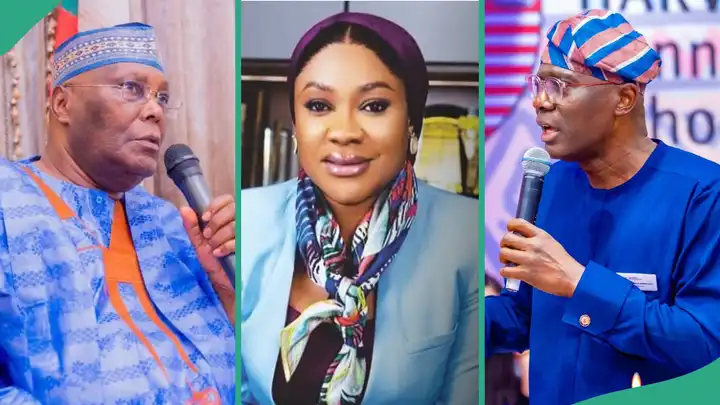
Investigation of wanted businesswoman Achimugu not linked with Atiku, Sanwo-Olu – EFCC
The Economic and Financial Crimes Commission has reacted to media reports linking its investigations of Ms. Aisha Achimugu with political undercurrents involving former Vice President Atiku Abubakar and Lagos State Governor, Babajide Sanwo-Olu
This is contained in a statement by the commission on Friday night.
The statement read, “We wish to state unequivocally that the investigations of Achimugu have no correlation of any kind with the two political actors. She is being investigated for alleged criminal conspiracy and money laundering and has since been declared Wanted by the Commission”.
The EFCC started investigating Achimugu in 2022. Although she approached the court to obtain an injunction restraining the Commission from arresting, investigating, inviting or detaining her for any alleged criminal act, the injunction was challenged and vacated on Wednesday, February 19, 2025 by a Federal High Court sitting in Abuja.
The court ruled that “…no court has the power to stop the investigative powers of the Police or EFCC or any agency established under our laws to investigate crimes when there is reasonable suspicion of commission of a crime or ample evidence of commission of an offence by a suspect.”
“The court further upheld the interim order of forfeiture of assets of Achimugu suspected to be proceeds of crime, dismissing her suit against it as lacking merit .
“The foregoing clearly establishes that the EFCC’s case against her has no immediate or remote nexus with any politician or any veiled or open reference to any political engagement or transaction.
“The EFCC is non-partisan and non-sectarian. We enjoin the public to continue to keep faith with the professionalism of the Commission without imputing any extraneous consideration to its works.”
News
Why governors’ forum is silent on Rivers emergency, by DG
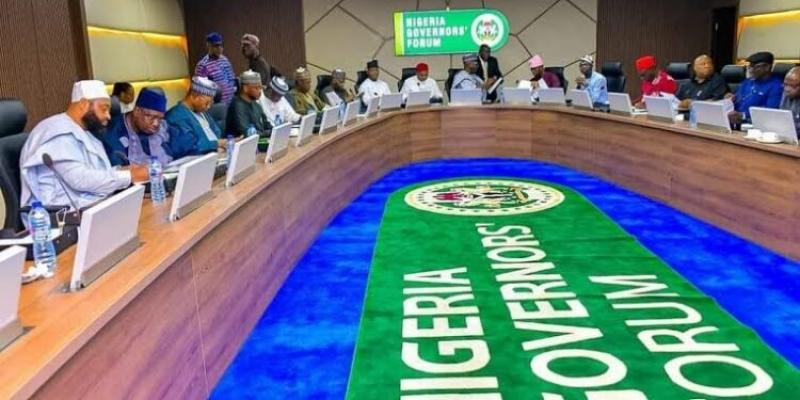
Why governors’ forum is silent on Rivers emergency, by DG
The Nigeria Governors’ Forum (NGF) yesterday attributed its neutral position on the recent declaration of a state of emergency in Rivers State to the need to steer clear of taking positions that may alienate members with varying political interests.
Taking positions on contentious partisan issues, the NGF said, would not augur well for it, especially in view of its past experience in fundamental division.
Notwithstanding, the declaration of the state of emergency by President Bola Tinubu yesterday generated more kudos and knocks from across the country.
Special Adviser to the President on Senate Matters, Senator Basheer Lado, said the action of the president was meant to ensure protection of lives and restoration of law and order in the state, while the President’s Special Adviser on Media and Public Communications, Sunday Dare, said his principal was required to “avert needless harm and destruction .”
National Publicity Secretary of the ruling All Progressives Congress (APC), Felix Morka, said Tinubu, by his action, cleared what had manifested as a constitutional crisis in Rivers state.
But former President Goodluck Jonathan saw it from a different perspective.
READ ALSO:
- Senate didn’t get 2\3 majority for Tinubu emergency rule in Rivers –Tambuwal
- FG destroys another 200 containers of expired drugs
- Rivers court bars woman from answering ex-husband’s name
He described “abuse of office and power by the three arms of government in the country“ as a dent on Nigeria’s image.
The NGF, in a statement by its Director General Abdulateef Shittu, said it is essentially “an umbrella body for sub-national governments to promote unified policy positions and collaborate with relevant stakeholders in pursuit of sustainable socio-economic growth and the well-being of the people.”
It added: “As a technical and policy hub comprising governors elected on different platforms, the body elects to steer clear of taking positions that may alienate members with varying political interests.
“In whatever language it is written, taking positions on contentious partisan issues would mean a poor sense of history — just a few years after the forum survived a fundamental division following political differences among its members.
“Regardless, the Forum is reputed for its bold positions on governance and general policy matters of profound consequences, such as wages, taxes, education and universal healthcare, among others.”
It asked for “the understanding of the public and the media, confident that appropriate platforms and crisis management mechanisms would take care of any such issues.”
Why governors’ forum is silent on Rivers emergency, by DG
-

 Uncategorized3 days ago
Uncategorized3 days agoBreaking: Moon sighted in Saudi, UAE, others, Eid-Fitr holds Sunday
-

 metro3 days ago
metro3 days agoRamadan ends in Nigeria, Sultan announces March 30 as Eid-el-Fitr
-
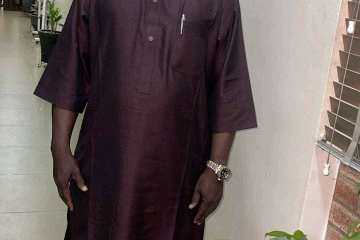
 metro3 days ago
metro3 days agoEmbrace environmental sanitation during Eid-Fitr, LAGESC boss tells Lagosians
-
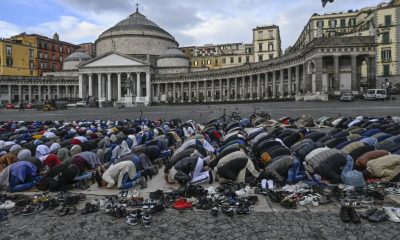
 International1 day ago
International1 day agoIn pictures: Eid celebrations around the world
-
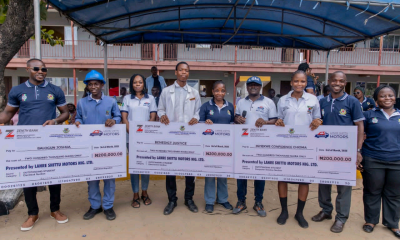
 Auto3 days ago
Auto3 days agoLanre Shittu Motors to endow Automobile Department of Lagos Technical College
-
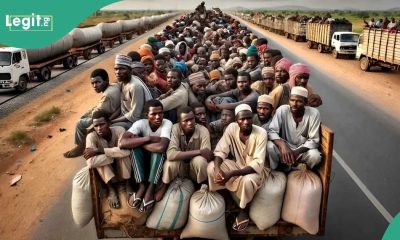
 metro17 hours ago
metro17 hours agoHow they murdered my Kano-bound passengers in Edo
-

 metro16 hours ago
metro16 hours agoKano Gov Yusuf, Sanusi linked to Eid killings
-
Business2 days ago
Dangote Refinery: MRS, other filling stations increase petrol price

